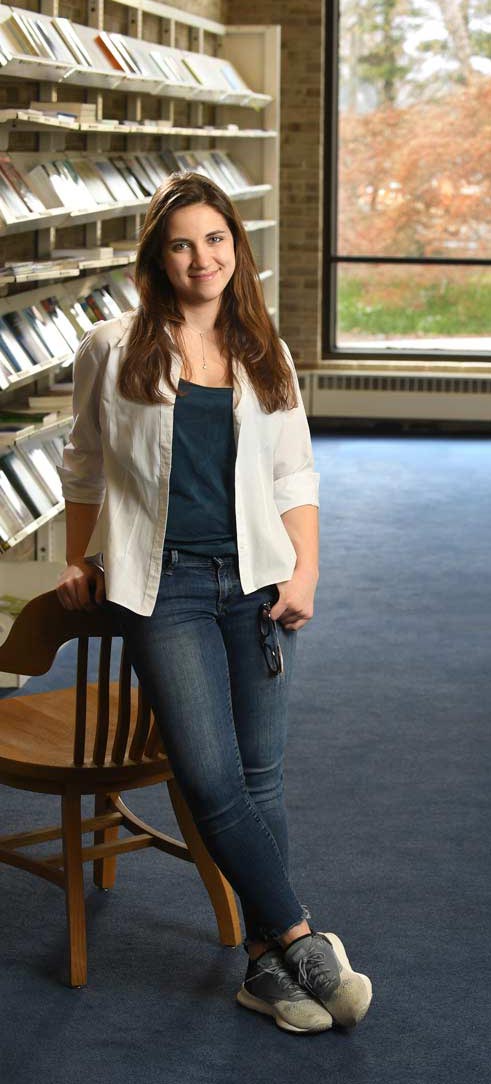For Mina Erten ’21, the road to cognitive neuroscience passed through the kitchen of a two-star Michelin restaurant in Barcelona. Though that may seem an ambling route to a concentration in psychology, in Erten’s telling, it was no detour.
As a dual Swiss-Turkish national—like both her parents—Erten grew up dividing her time between the two countries. She attended high school in Istanbul and was a keen observer of the bifurcated metropolis. “The structure of Istanbul, balanced between two cultures and two continents, plays into everyone’s daily life there,” she says.
Erten’s supple intellect reflects the binaries in her background, allowing her to navigate diverging paths of inquiry and experience. After high school, where she studied mathematics and literature, Erten opted for culinary school in Lucerne, Switzerland, and graduated as a pastry chef. She was soon hired at the Ritz-Carlton in Barcelona. “Baking is chemistry, and you have to be meticulous, but at the restaurant I did a lot of different cooking and plating,” she recalls. “It took creativity to make the dishes beautiful and delicious, and I learned how to balance precision and intuition.”
Earlier this year, Erten co-authored a paper with Adam Brown (psychology, Sara Yates Exley Chair in Teaching Excellence), which was published in Frontiers in Psychology. “Memory Specificity Training for Depression and Post-Traumatic Stress Disorder: A Promising Therapeutic Intervention” is a literature review of new ways to use enhanced memory techniques to help those with PTSD or depression.
For patients with affective disorders, the difficulty in recalling specific details of their past—a condition known as Overgeneral Autobiographical Memory—can prevent them from forming positive narratives about themselves, which can lead to debilitating anxiety about the future and other problems. Erten is now studying a memory priming technique, called the Episodic Specificity Induction (ESI), that may enhance patients’ ability to recall memories with greater sharpness.
In Erten’s experiment, subjects are asked questions to provoke detailed recollection and then view a mundane video of household chores. The theory behind ESI is that improving the specificity of a patient’s recollections using innocuous events in a therapeutic setting can—like strengthening a muscle—improve the ability to recall details of past positive experiences. This can help patients imagine richer narratives about the future, thereby diminishing anxiety.
“You have to be meticulous. … I learned how to balance precision and intuition.”
“One thing that struck me when I first met Mina was how disciplined and focused she is, especially for a first-year student,” Brown says. “Psychological research has a lot of moving parts, and it’s amazing Mina has gotten this far along in such a short time. So far the data is looking good, and consistent with our hypothesis.”
Inspired by the intricate nexus of psychology and law, Erten plans to attend law school after earning her bachelor’s degree at Sarah Lawrence. “There is a huge interest in cognitive psychology and criminal justice, especially regarding the malleability of memory, eyewitness testimony, and false confessions,” Erten explains. “It’s a rich area for research, and there is a lack of action on these issues that should be changed in the interest of equal justice.”
Written by Chris Quirk
Photo by Chris Taggart
